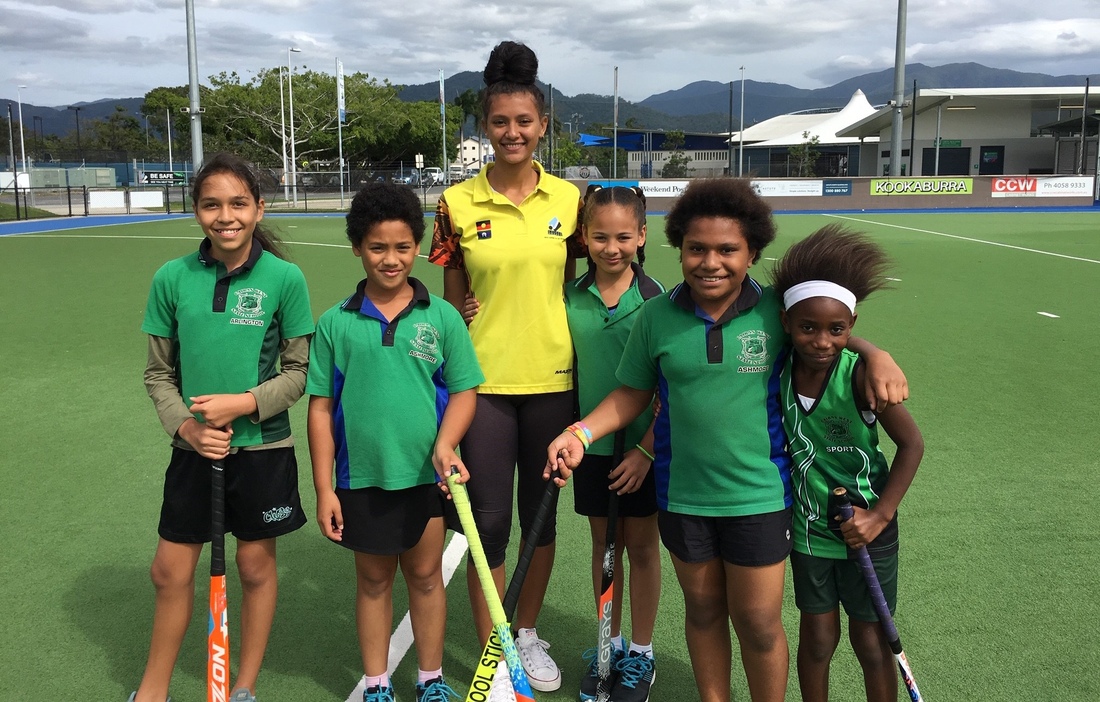
Aspire Cairns: Women's History Month Grantee Q&A
Helping Aboriginal & Torres Strait Island girls to Live Well. Learn Well. Lead Well.
March 22, 2024
As the popular saying goes, everything in Australia is trying to kill you. For Julie McNeil, CEO of sport for development NGO, Aspire Cairns, there’s a far more positive spin to put on that. Operating in the rural far north of Queensland, McNeil’s hockey-focused organization uses their expertise to empower Aboriginal and Torres Strait Island (First Nations) girls and young women through the sport, placing particular emphasis on developing young leaders.
In 2015, they launched ‘Aspire to be Deadly,’ a development program that encourages girls from the Gimuy Walubara Yidinji First Nations people (Cairns Region) to embrace their power and hone their competitive spirit in positive directions. The program offers the girls practical tools to live up to its motto to ‘live well, learn well, lead well.’
An offshoot of Cairns Hockey, ‘Aspire to be Deadly’ was created to offer specific support for girls in rural, remote and marginalized settings. Aspire may operate out of Cairns, but thanks to a wide network of partnerships and alliances, they’re able to deliver 26 sports-based programs across northern Australia with links across Far North Queensland, Cape York, the Torres Strait Islands and Gulf Savannah Regions. This is no small feat considering Australia is the sixth largest country in the world–almost as large a land mass as the United States.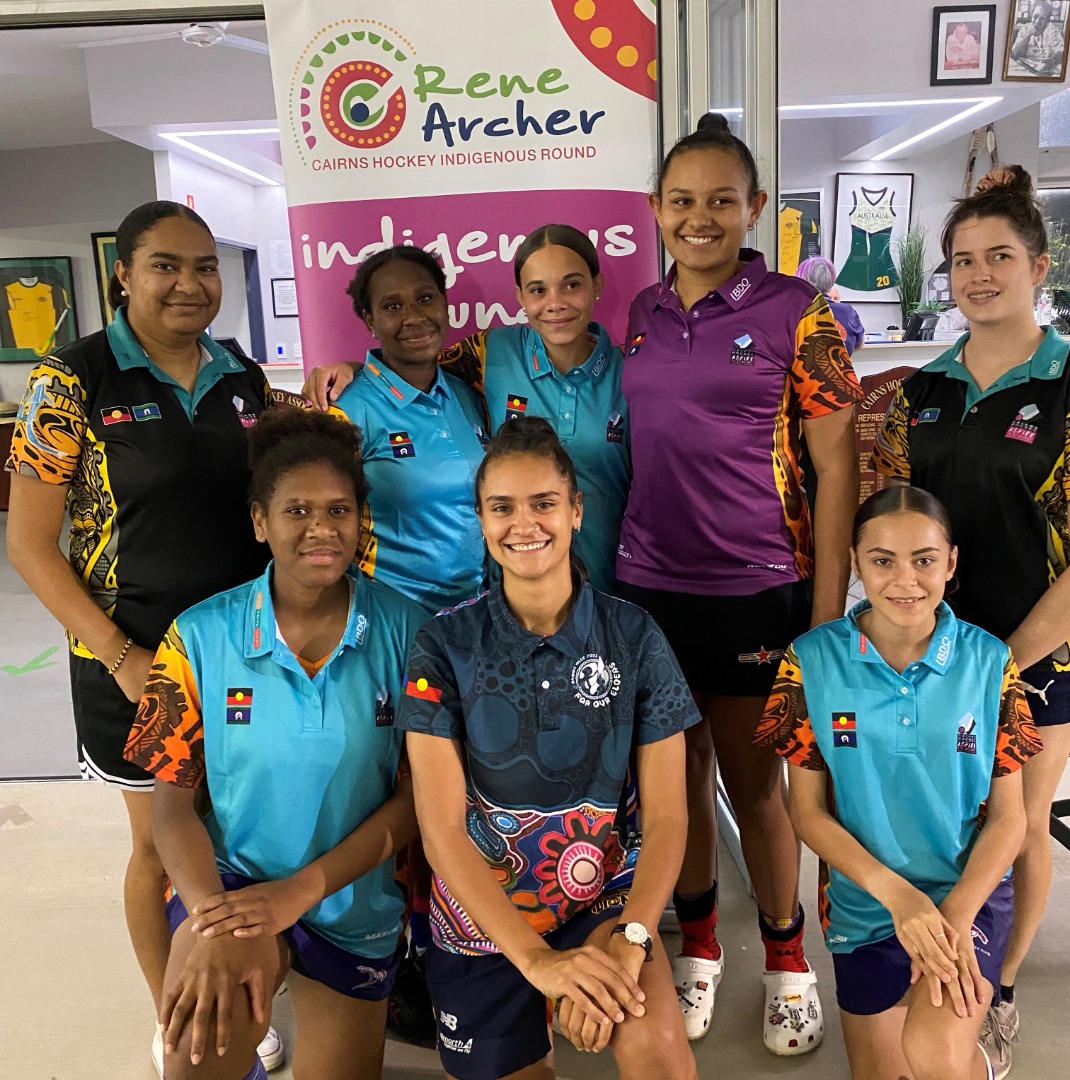
We spoke to Julie to learn a little more about the ways girls and young women are responding to the programs.
Why is it important for girls, particularly in rural communities, to have this support?
We often found when we were visiting remote communities that young women and girls just don’t have access to the kinds of programs offered to boys. So we decided that it would be good to give the young women and girls something designed especially for them. To prioritize them, and acknowledge that they were valued as much as any other part of the community, while also building capacity aligned with education, well-being, employment and leadership opportunities. We believe in finding local solutions to local challenges, and women and girls are central to being the leaders, mentors and ambassadors of that effort.
What kind of practical challenges for girls’ inclusion in sports do you identify and mitigate?
In rural and remote areas where money is tight, transport is a huge barrier for girls. So there could be a family car, but the car will usually be used for the boys to play football. Or there’s not enough petrol by the weekend so nobody in the family can go out at all. We try to address these challenges by aligning and linking our programs with schools and their facilities. Where that’s not possible, we hire vehicles to collect the participants after school and take them to our hub, which is kind of a space that the girls can make their own.
We give them some afternoon tea, chat about things that might be on their mind, you know? After teambuilding and themed activities, everyone gets back on the bus around 6pm and we take them directly to their homes. We build trust with family and community, their parents know they’re safe, and the girls know there’s a dependable routine. It’s really these kinds of practical things that make participation and engagement possible.
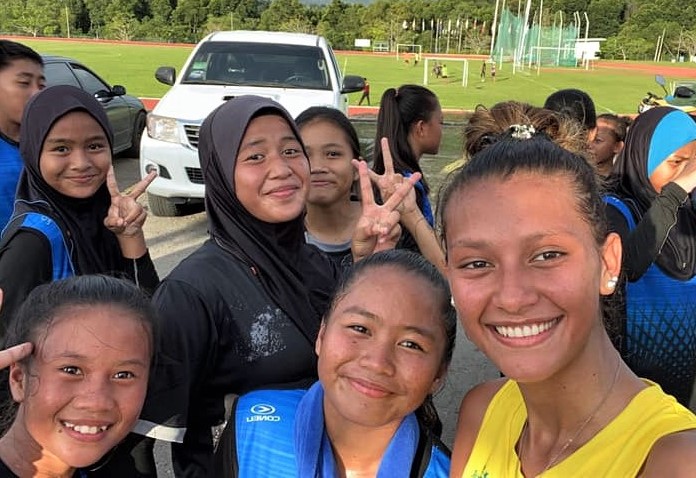
Mental health challenges have been at an all-time global high since the pandemic. What challenges have you seen in your programs?
Yeah, the pandemic hit our First Nation people and communities really hard–they were at huge risk in terms of health outcomes. Our remote communities were entirely cut off and isolated from the rest of the world, and they had to become self-sufficient basically overnight. We had to upskill people very quickly using methods born of necessity, but the positive was we gained a real understanding of different community priorities. In the Torres Straits, for instance, there are a lot of difficulties with eye problems and diabetes. So we could really put inclusive programs in to support that.
In general, though, mental health challenges are always there: the girls are struggling with something all the time. Intergenerational trauma is very real and manifests physically as well as emotionally so, for us, it’s more keeping our mentoring focused on them. We try to identify when situations are escalating, be mindful of the breaking points and be there to catch them if needed.
Speaking of different community needs, what is your approach when using sport to engage diverse cultures?
We work with schools, business, health and wellbeing agencies and always give our partners flexibility to adapt material so it’s culturally or linguistically appropriate. For instance, we made sure to get permission to use culturally appropriate names for events to build a sense of ownership and belonging in First Nation Torres Strait Island communities. There are also a lot of traditional games that are used throughout Australia, and we like to incorporate those too (for those interested, there’s actually a resource called Yulunga that lets you discover what games feature where you’re living).
One popular indigenous game is called kokan – it’s quite similar to hockey, and it uses sticks and coconuts. We looked for a local word for little or small, which was migi. Because we play five a side, not the traditional 11, we suggested the program name be migi kokan. We sought and received permission to be able to use this name in our program to build a sense of ownership, connection, respect and belonging in First Nation Torres Strait Island Communities. We play that as well as hockey: they teach us; we teach them. And most of the time when we deliver locally it’s actually a modified version of both!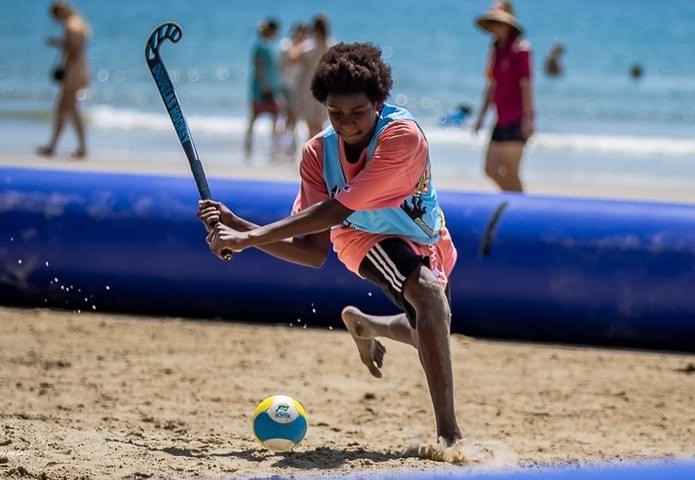
You work in some very remote parts of Australia. How do you adapt to different kinds of environments?
We like to say we’re strength-based not deficit-based. That means we just make the strengths stronger rather than focus on what we don’t have, or think a program isn’t good enough if it runs differently. For instance, we operate on one island in the Torres Strait that’s literally the top of an inactive volcano sticking out of the water. So essentially there’s absolutely no flat land except for the beach. But you use what you have: if you have to play on the beach, you play on the beach!
What happens to your program graduates?
We’ve been bringing people through the program for nearly a decade now–since 2015! That means we’ve had people finish school, go to university and start really interesting jobs. Some of our alumni are now doctors in rural medicine, emergency services workers, teachers…we even have a model, Lisa. Lisa actually came to our program needing support with some confidence and bullying issues. After finishing our program, she worked with us as a development officer, mentoring other kids with similar issues. With her confidence growing, she expressed an interest in trying her hand at modeling, so we helped support that.
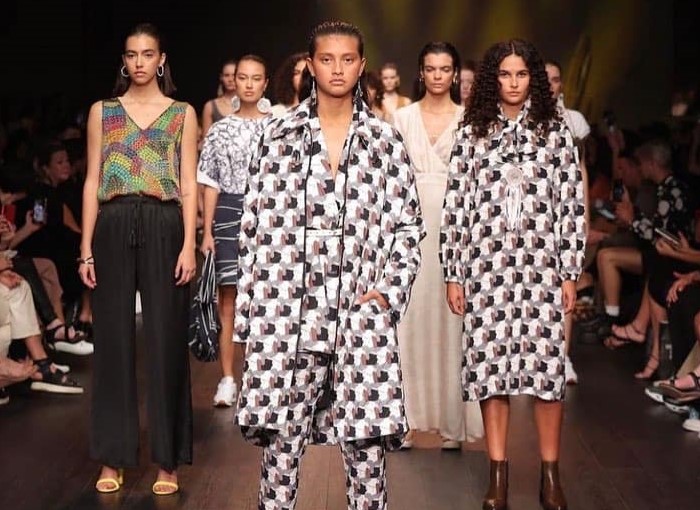
Now she’s been contracted by IMG agency and is working out of Sydney. Whenever she comes home for a visit, she always knocks on my door and says, ‘I’m back for a few weeks; what can I do?’ She’s actually back as we chat now, so she’ll be spending six to ten hours a week with us for March, reconnecting with the community and helping the kids from the next generation. It’s so special to see that full circle.
That’s wonderful! Do you typically have a lot of alumni volunteering with you?
We were curious about this too, so funnily enough it’s something we just tracked. Turns out, over five years, we have just shy of a 30% rate of returnees who want to volunteer and mentor within the program that previously helped them. We think that’s really high! That can-do ‘we’ll help somewhere’ attitude goes a long way in communities.
Aspire Cairns has been a participant of our Breaking Limits Program with Rexona (also known as Sure, Degree or Shield) since 2023.